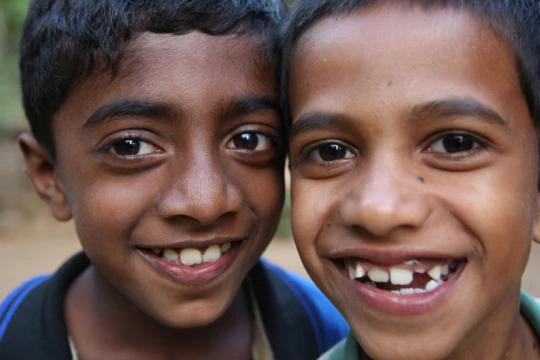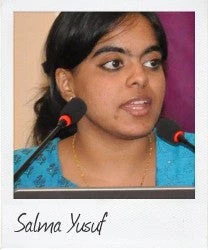
Would you ordinarily expect a report on human development to have a separate and entire chapter dedicated to the subject of reconciliation and social integration? I certainly found it curious. Yet, on second glance, it became clearer to me that the connection was not surprising at all since the subject of the report was youth and development.
Let me explain. I am a child of the war. Having been born and raised in war-time Sri Lanka, I am convinced that young people can help mend fractured inter-communal relations, least because they bore the brunt of the conflict but most because in the context of my country it was disenchanted youth that spearheaded the move to conflict.
Having been invited to speak to the chapter on reconciliation and social integration of the United Nations National Human Development Report 2014 launch in Colombo that was held to coincide with International Youth Day on 12 August 2014, I was tasked with sharing my observations and reactions to its findings and analyses.
Three particular aspects flew out of the pages and struck me, so to speak. It not only made me rethink but also redefine previously held notions.
First, when we think of the most divisive aspect of Sri Lankan society, what do we chose? Ethnicity would be the easy winner. However, the report makes a startling finding that it is the confluence of factors around caste, class and social and political affiliations that causes the greatest discontent among youth. This is an important finding because the inter-linking of factors is often missed in a quest for solutions. In other words, ethnicity is but one factor to consider.
I would like to go one step further and suggest that the model we aspire to not be solely an equal society but also an equitable society where justice and fairness is not only implemented to the letter but in spirit, too.
The second aspect that struck me was the issue of language. While the report rightly argues that sustained exchanges between different linguistic communities are necessary, I believe that it must be coupled with structured interaction. Improved understanding of the other will naturally follow. Why then is understanding each other important? A national conversation on dignity for all is what we need if we want to secure lasting peace and stability in Sri Lanka.
The third aspect of the report that struck me was the role of women. In post-war Sri Lanka, grappling with cultural and traditional roles while moving towards new social roles has been quite the challenge for women. How then do we overcome what the report interestingly terms a “new conservatism"?
It is time that we begin a robust dialogue that explores how cultural and traditional roles of women can be harnessed towards greater social contribution. We must find a way to make the two imperatives mutually reinforcing rather than placing women in the unfair position of having to choose one or the other.
What do you think? How should we Sri Lankans go about it? Share your views in the comments.


Join the Conversation